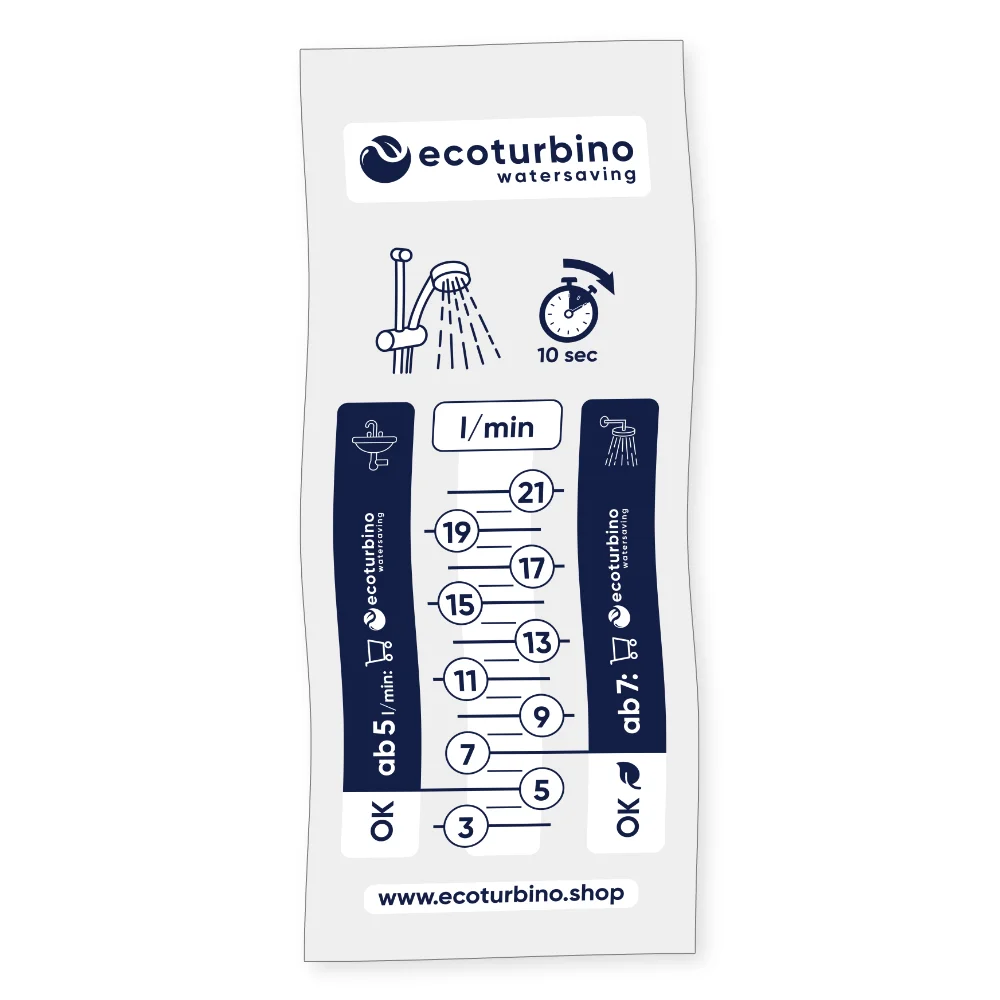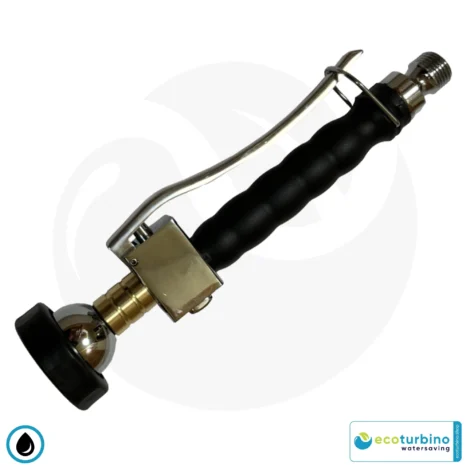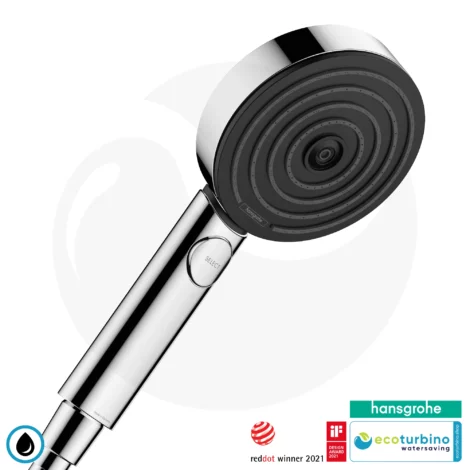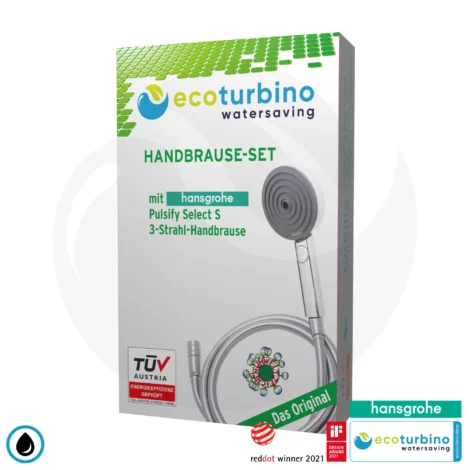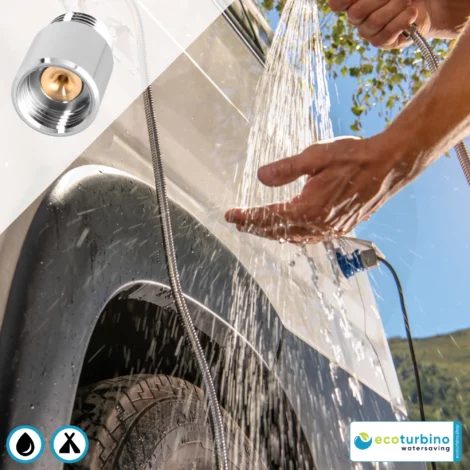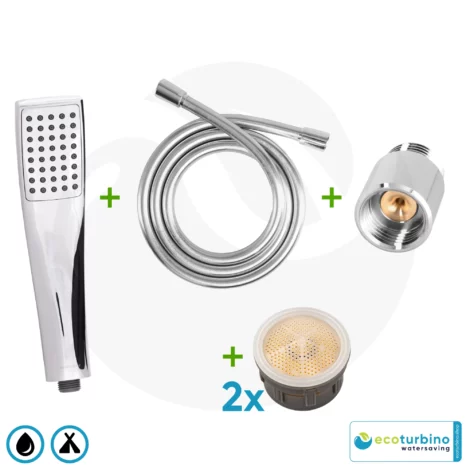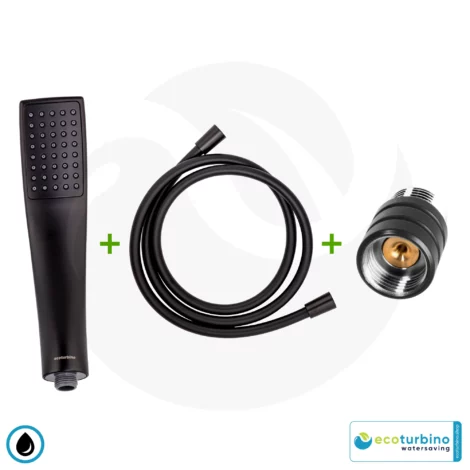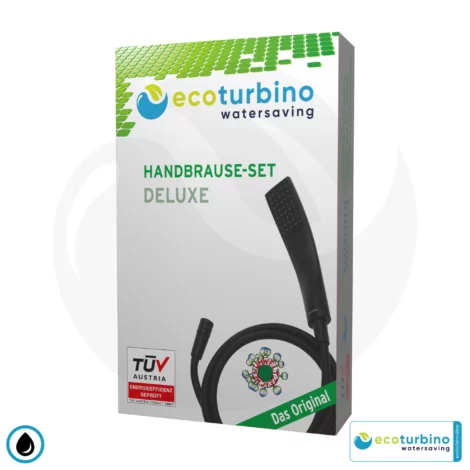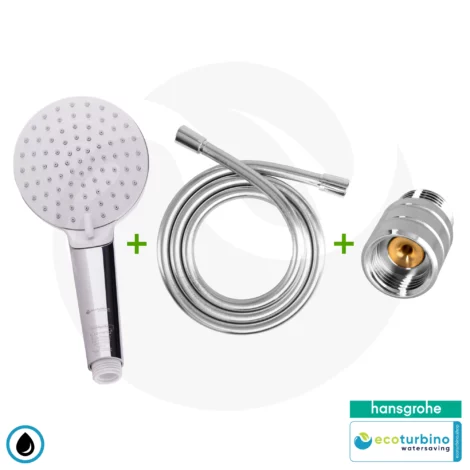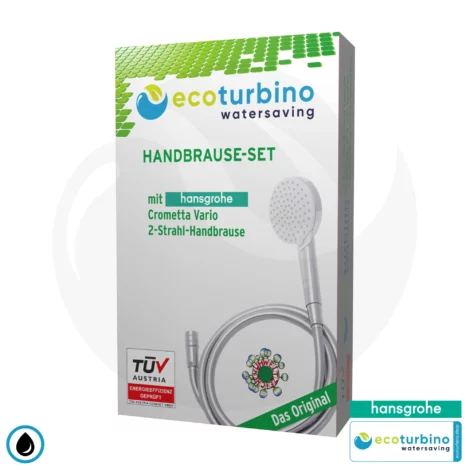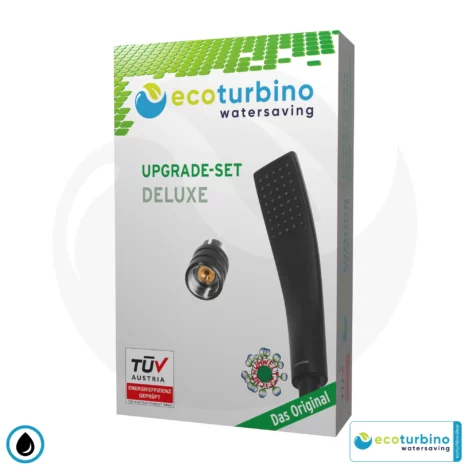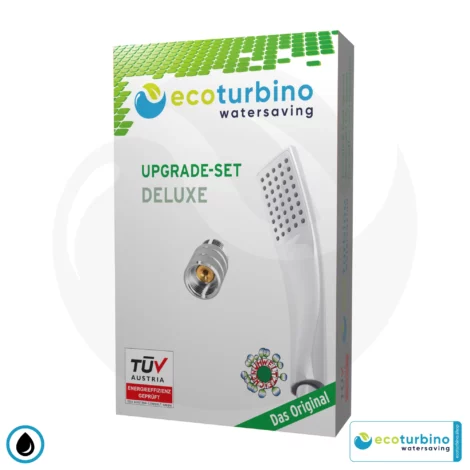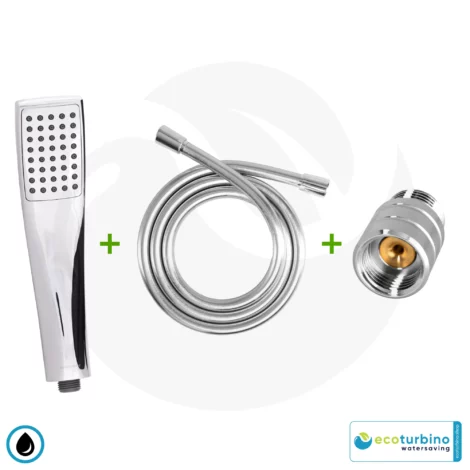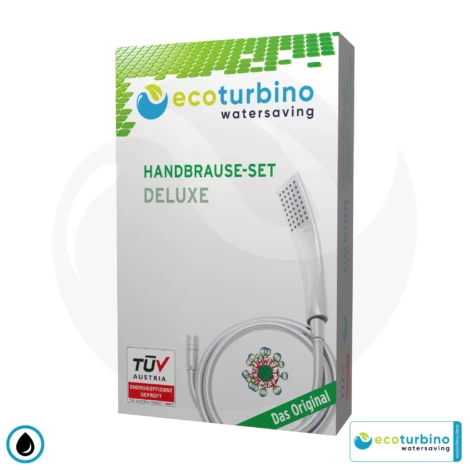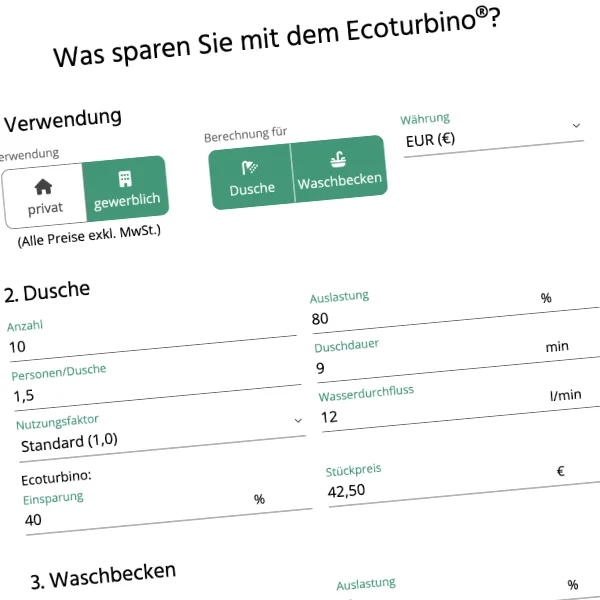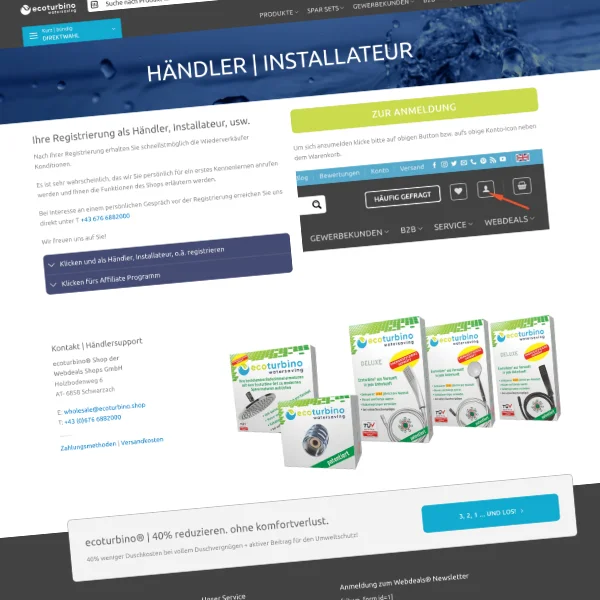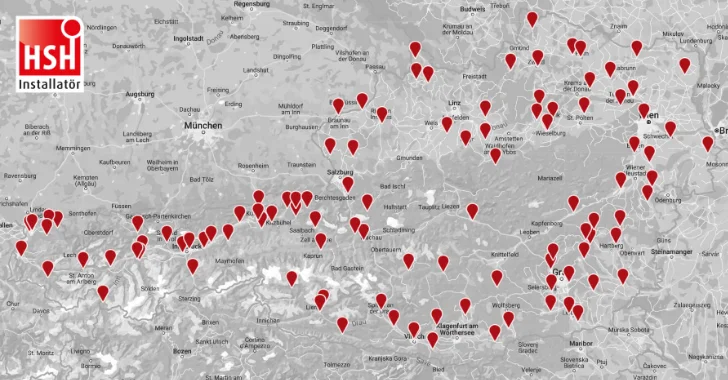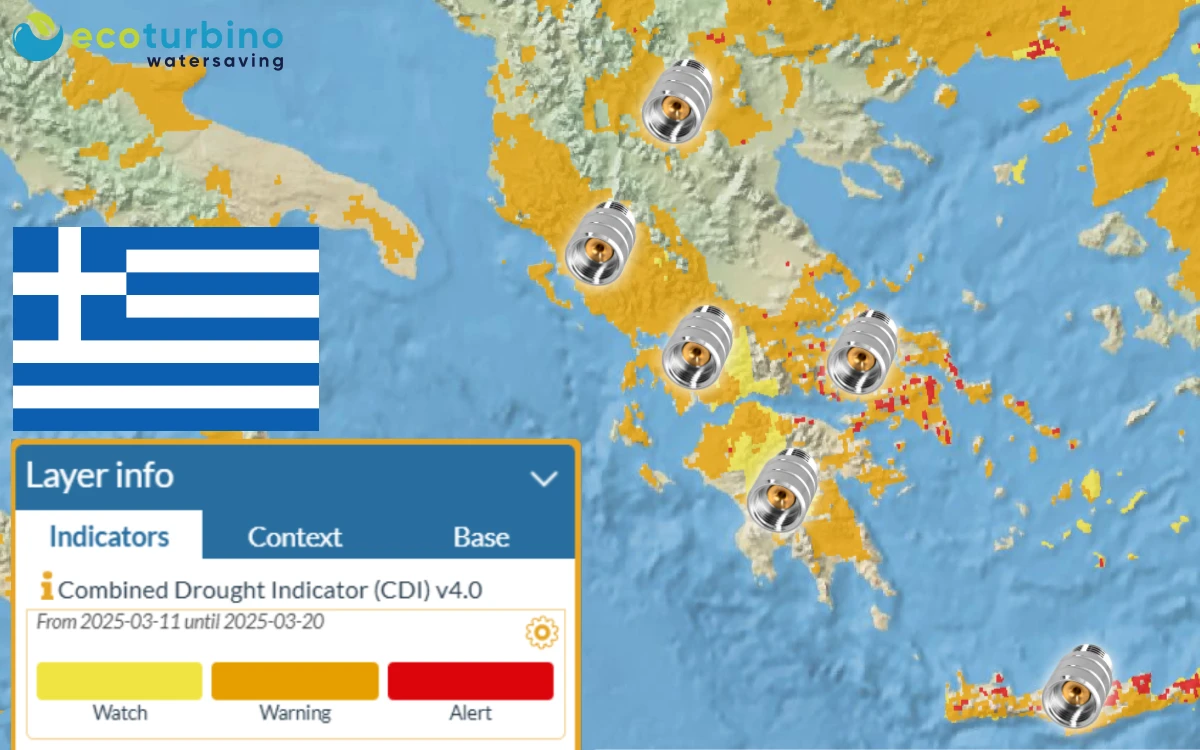Blog
Water scarcity Greece: A growing water crisis and how ecoturbino could help?
Water Scarcity Greece: A Growing Crisis and the Role of ecoturbino in Showers and Bathrooms
In 2025, Greece is grappling with a severe water scarcity crisis, particularly on islands like Naxos, Santorini, and Crete, which heavily rely on tourism. Reports indicate that reservoirs have dried up (see drought map) and demand exceeds supply, a situation worsened by climate change.
Athens alone is home to 3.15 million people. As early as 2024, tourists were unable to shower. Tourists can no longer shower! Greece fights desperately for water – FOCUS online
This report examines the causes and impacts of the crisis and explores how water-saving technologies like ecoturbino can help reduce water consumption, especially in the tourism sector, thereby contributing to alleviating water scarcity. Drinking water remains a scarce commodity in Greece in 2025 – Hellas Blog
Causes and Impacts
The primary causes include climate change with reduced rainfall, an outdated infrastructure that loses presumably up to 50% of water through leaks, and tourism, which has doubled water consumption on islands. This affects not only tourists but also agriculture, such as in Thessaly, where groundwater levels are dropping.
Solutions with ecoturbino
Ecoturbino offers a practical solution by saving water and energy, which is particularly beneficial for hotels on Santorini or Mykonos, as well as a city like Athens with over 3 million residents. It is easy to install and can support smaller businesses without requiring significant investments.
Detailed Analysis of Water Scarcity and ecoturbino in Greece
Background and Current Situation
In 2025, Greece is grappling with a severe water scarcity crisis, particularly affecting its islands, which are heavily reliant on tourism. Recent reports, such as one from Reuters dated February 20, 2025, highlight that Greece loses around half its drinking water due to leaky pipes and theft, nearly twice the EU average of 23% (Parched southern Greece reveals EU’s giant challenge to conserve water).
This issue is compounded by climate change, with the country experiencing some of its warmest summers and winters, leading to prolonged droughts. For instance, on Naxos, the largest reservoir has dried up, forcing reliance on desalination units, as noted in a July 9, 2024, article (Greek islands face water crisis as tourist season peaks).
Tourism exacerbates the problem, with islands like Santorini and Mykonos seeing doubled water consumption since 2020 due to the influx of visitors, straining already limited resources.
This not only affects tourists but also local communities and agriculture, with some islands declaring a state of emergency, such as Leros and Sifnos, as mentioned in a October 30, 2024, article (Water Scarcity Now Looms as Growing Problem for Greece). The National Geographic article from March 31, 2025, emphasizes that demand often outstrips supply, with many islands relying on water tankers to supplement reserves (Preventing a water crisis in Greece).
Causes of Water Scarcity
The crisis has multiple causes, as outlined in various sources. Climate change is a primary driver, with projections suggesting an 18% decrease in precipitation by 2050, leading to more frequent and severe droughts (Fresh water resources).
Outdated infrastructure is another significant factor, with Greece losing substantial water due to inefficiencies, as detailed in the Reuters article. Additionally, the tourism boom, especially during summer, increases demand, with popular islands facing intensified pressure, as seen in a September 23, 2024, New York Times piece (Tourism and Water Shortages on the Greek Islands: A Delicate Balance).
Impact on Greek Islands
The impact is particularly severe on islands like Santorini, Crete, and Mykonos, where tourism drives economic activity but also water consumption.
For example, Santorini’s water use has doubled since 2020, putting immense pressure on local supplies, affecting both residents and agriculture. Reports from National Geographic in March 2025 emphasize that demand often outstrips supply, with many islands relying on water tankers to supplement reserves (Preventing a water crisis in Greece).
This situation highlights the delicate balance between economic benefits and resource sustainability.
Government Initiatives and Large-Scale Solutions
In response, the Greek government announced a €5.9 billion plan on September 18, 2024, to enhance water resilience, including investments in desalination projects powered by renewable energy and infrastructure upgrades (Greek government announces €5.9 billion plan to address water crisis).
Desalination is seen as a potential solution, with plans discussed at the Small Islands Conference on Milos in October 2024, though concerns about water quality persist (Renewable desalination projects could solve Greek water scarcity crisis).
These efforts are supported by EU funding, with opportunities for water and wastewater technologies, as noted in a May 2024 market overview (Greece Water Market overview 2024 with planned upgrades). However, the scale and cost of these projects, estimated at hundreds of billions of euros, underscore the complexity of the challenge.
The Role of ecoturbino: A Micro-Level Solution for all bathrooms
Amid these large-scale efforts, water-saving technologies like ecoturbino offer a complementary approach.
ecoturbino is a device designed to reduce water consumption in showers by up to 50% without compromising comfort, as detailed on its official website (ecoturbino Official Website for water saving systems).
It works by creating a water-air mixture that maintains shower jet intensity, making it ideal for high-demand settings like hotels and households.
The device is easy to install and has been used in over 400,000 systems across Europe, particularly in hotels, healthcare facilities, and gyms, as noted in another source (ecoturbino References for global usage in hotels and facilities).
For Greece, ecoturbino could significantly reduce water use in tourist accommodations, lowering costs and enhancing sustainability. For instance, hotels on Santorini could save on water bills while appealing to eco-conscious travelers, aligning with the growing trend of sustainable tourism.
While specific success stories in Greece are not widely documented, its proven effectiveness elsewhere suggests potential, with reports indicating up to 50% water reduction in some cases (ecoturbino Water Saving System product details and benefits).
Benefits and Implementation
The benefits for hotels are twofold: cost savings on water and energy bills, and an improved sustainability image, which is increasingly valued by environmentally aware tourists. For example, implementing ecoturbino in spas, swimming pools, and guest rooms on islands like Mykonos could optimize water use, as suggested in product descriptions (ecoturbino Shop for purchasing water-saving adapters).
For smaller establishments like beach bars and holiday rentals, ecoturbino offers a cost-effective solution without requiring major renovations, making it accessible for businesses with limited resources.
Challenges and Future Outlook
Despite its potential, challenges remain, including the need for widespread adoption and awareness. The government’s focus on large-scale infrastructure might overshadow micro-level solutions like ecoturbino, but its simplicity and immediate impact make it a valuable tool.
The future outlook depends on integrating such technologies with broader initiatives, ensuring a balanced approach to water management. Research suggests that without such combined efforts, water scarcity could intensify, with projections indicating no reduction by 2030 despite declining abstractions (Water scarcity conditions in Europe with projections to 2030).
Conclusion
The water scarcity crisis in Greece in 2025 requires a multifaceted approach, combining government-led initiatives with individual and business-level actions. ecoturbino represents a practical, immediate solution for dramatical reducing water consumption in showers and bathrooms, particularly in tourist-heavy areas.
By adopting such innovations, Greece can move toward a more sustainable future, preserving water resources for both locals and visitors while supporting its vital tourism industry.
Table: Summary of Key Data
| Aspect | Detail |
| Water Loss | Greece loses ~50% of drinking water due to leaks, vs. EU average 23% |
| Government Investment | €5.9 billion plan announced in September 2024 for water resilience |
| ecoturbino Savings | Up to 50% water reduction in showers, maintaining comfort |
| Impacted Islands | Naxos, Santorini, Crete, Mykonos, among others |
| Climate Change Projection | 18% precipitation decrease expected by 2050 |
Key Citations
- Parched southern Greece reveals EU’s giant challenge to conserve water
- Greek islands face water crisis as tourist season peaks
- Preventing a water crisis in Greece
- Greek government announces €5.9 billion plan to address water crisis
- ecoturbino Official Website for water saving systems
- Tourism and Water Shortages on the Greek Islands: A Delicate Balance
- Greece Water Market overview 2024 with planned upgrades
- Fresh water resources and climate change impact in Greece
- Water Scarcity Now Looms as Growing Problem for Greece
- ecoturbino References for global usage in hotels and facilities
- ecoturbino Water Saving System product details and benefits
- ecoturbino Shop for purchasing water-saving adapters
- Renewable desalination projects could solve Greek water scarcity crisis
- Water scarcity conditions in Europe with projections to 2030

